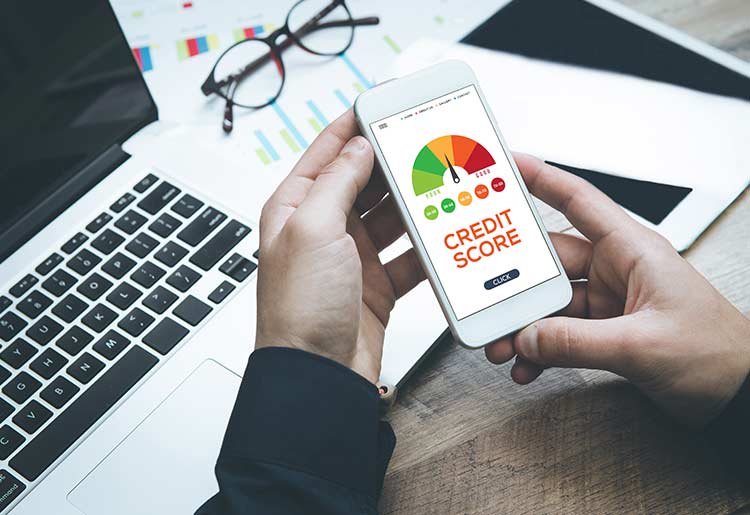- Home/
- Personal Loans/
- Get the Lowdown on How to Calculate Your Credit Score
Get the Lowdown on How to Calculate Your Credit Score
May 25, 2022

May 25, 2022

Knowing your credit score means that you’re aware of how you appear to lenders and lets you take steps to improve your credit or to demand better rates from loan providers accordingly.
Your credit score is calculated as a number between 300 and 850. There are 2 main models for calculating your credit score – FICO and VantageScore. FICO is the most longstanding and widely used scoring system. Although the FICO Company won’t say exactly how it calculates your credit score, it has revealed that it considers 5 factors.
| Factor | Percentage of total score |
|---|---|
| Payment history | 35% |
| Amount owed | 30% |
| Length of credit history | 15% |
| New credit | 10% |
| Type of credit | 10% |
Payment history
This is the most important element in determining your credit score, making up 35% of the final number. Your payment history indicates whether you make monthly payments on time, how often you’re late in paying them, and how late you are if you do make a late payment. The higher your proportion of on-time payments, the higher your score will be. On the flip side, whenever you miss a payment, this will negatively impact your overall score.
Amount owed
About 30% of your score is based on how much debt you have overall as well as your debt-to-income ratio, how much credit you have left unused on your credit cards, and how many debts you have at the same time. Having a large amount of debt and lots of different loans to pay off will drag down your credit score.
Length of credit history
If you have a long credit history of making timely payments, you’ll have a higher score than if you’ve only applied for a loan or credit card recently. Your credit history makes up about 15% of your final credit score.
New credit
Just as having a long credit history helps your credit score, taking on a bunch of loans or applying for new lines of credit damages it. But, this is usually only temporary – after a few months of timely payments, your credit score should recover, unless you really took on a lot of debt. New credit makes up 10% of your score.
The type of credit
The final 10% of your credit score is based on whether or not you have a good mix of loans in your credit history. Being able to manage a variety of loans, such as mortgage, auto loans, and student loans, is good for your credit score.
The higher your credit score the more options you have when it comes to taking out a loan because more lenders will be willing to give you an offer. Also, because with high credit you are considered less of a risk, your interest rates will tend to be lower. However, there are still plenty of lenders out there that are happy to provide loans to people with bad credit at favorable rates.
| Credit score rating | Credit score range | Average APR for market |
|---|---|---|
| Excellent | 720 - 850 | 10.94% |
| Good | 690- 719 | 14.56% |
| Average | 630 - 689 | 19.84% |
| Bad | 580 - 629 | 28.64% |
| Poor | 579 and below | Most lenders will not lend |
Now that you understand more about the way in which your credit score is calculated, you can take care to do as much as you can to keep it high so that you can enjoy the best rates on loans, mortgages, and credit cards. Take some time to compare the best loan providers out there in order to find the one that suits your specific needs.
The BestMoney editorial team is composed of writers and experts covering a full range of financial services. Our mission is to simplify the process of selecting the right provider for every need, leveraging our extensive industry knowledge to deliver clear, reliable advice.